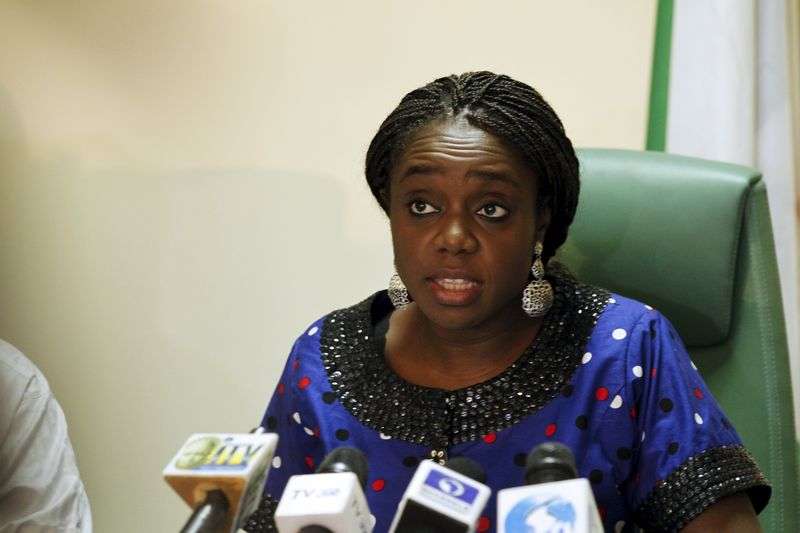- N3.57tn Borrowed in 21 Months to Finance Budget Deficit
The Federal Government said on Tuesday that it borrowed N3.57tn between June 2015 and March 2017 to finance budget deficits.
The government said this in response to an enquiry which sought to know what use it had put the funds being borrowed in the last two years from both external and local sources.
The enquiry, which was addressed to the Minister of Finance, Mrs. Kemi Adeosun, under the Freedom of Information Act, sought to ascertain the specific projects that the borrowed funds were used to execute.
The minister, however, referred the enquiry to the Debt Management Office for response.
In its response, the DMO hinted that the domestic borrowing was not tied to any specific projects but warehoused in the Consolidated Revenue Fund Account with the Central Bank of Nigeria for funding budget deficit, while the foreign loans were tied to specific projects.
The response from the government signed by Director, Policy, Strategy and Risk Management Department, DMO, Mr. Joe Ugoala, read in part, “In the case of domestic borrowing, kindly be informed that funds raised through the issuance of FGN securities in the domestic capital market are remitted into a pool – the Consolidated Revenue Fund Account maintained in the Central Bank of Nigeria for the purpose of funding the appropriated budget deficit.
“It is important to note that these borrowings from both external and domestic sources are mainly used to fund development of infrastructure and human capital in the various sectors of the economy, as listed in the appropriation acts.”
Statistics obtained from the DMO showed that the Federal Government’s domestic component of the national debt rose from N8.39tn as of June 2015 to N11.97tn by March 2017. This means that the domestic debt of the Federal Government rose by N3.57tn within the period.
According to the 2016 Appropriation Act, the Federal Government budget deficit for 2016 amounted to N2.22tn, while the deficit for 2017 amounted to N2.36tn. For 2015, the budget deficit stood at N755bn or 0.79 per cent of the Gross Domestic Product.
On monthly basis, the Federal Government uses a number of instruments to borrow money from the debt market. These include FGN Bonds, the Nigerian treasury bills and the Nigerian treasury bonds. It recently added a new instrument to the pack, the FGN Savings Bond.
Of the Federal Government’s domestic debt of N11.97tn as of March 31, FGN Bonds accounted for N8.18tn or 68.31 per cent; Nigerian treasury bills accounted for N3.6tn or 30.08 per cent; Nigerian treasury bonds, N190.99bn or 1.6 per cent; while the FGN savings bond accounted for N2.07bn or 0.02 per cent.
The nation’s domestic debt stood at N19.16tn as of March 31, 2017.
As of March 31, 2015, the country’s total debt stood at N12.06tn. This means that within a period of two years, the nation’s debt stock had increased by 58.84 per cent.
Within the period of two years, the country’s external debt rose from $9.46bn to $13.81bn. This means that within the two-year period, the country’s external debt rose by $4.35bn or 45.98 per cent.
The external debt component, however, has been affected by exchange rate variations as the last two years have witnessed significant changes in foreign exchange rates.
According to the DMO, the official exchange rate of N306.35 to $1 was used in calculating the country’s external debt for March 31, 2017, while the official rate of N197 to $1 was used in determining the foreign debt for March 31, 2015.
The domestic debt component of the states stood at N2.96tn as of March 31, 2017, up from the figure of N1.69bn as of March 31, 2015.
This means that within the period of two years, the domestic debt of the states rose by N1.27tn or 75.15 per cent.
With drying revenues from oil and gas, the government in the last two years has increasingly depended on borrowing even to carry out routine responsibilities.
Although foreign debts are seen as cheaper than domestic debts, the government has increasingly depended on local debts as foreign donors place more stringent conditions on its path.


 Forex2 weeks ago
Forex2 weeks ago


 Naira1 week ago
Naira1 week ago
 Naira4 weeks ago
Naira4 weeks ago
 Company News4 weeks ago
Company News4 weeks ago
 Billionaire Watch1 week ago
Billionaire Watch1 week ago




 Naira2 weeks ago
Naira2 weeks ago




 Naira1 week ago
Naira1 week ago




 Naira3 weeks ago
Naira3 weeks ago





















